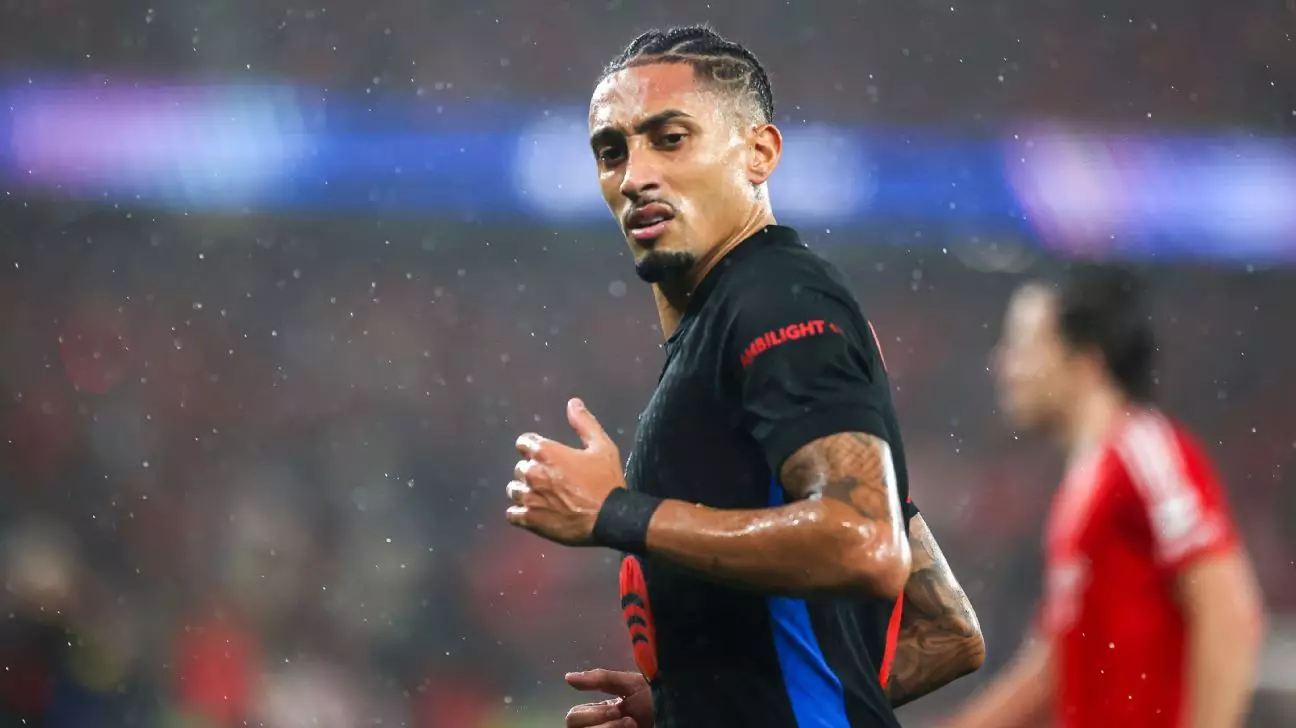In the world of professional football, the pressure of scheduling can be a formidable challenge for even the most seasoned coaches. Hansi Flick, the head coach of Barcelona, openly expressed his concerns regarding the club’s packed schedule following an international break, showcasing the delicate balancing act that coaches must perform. Flick’s anxiety about the clash against Osasuna is a common sentiment among football managers, especially when players return from international duty, often fatigued and jet-lagged. The impetus behind rescheduling this match stemmed from a tragic event – the untimely passing of Barcelona’s team doctor. Such circumstances accentuate the often-overlooked human factors that influence match arrangements in elite sports.
As the football season intensifies, teams face a relentless barrage of fixtures. Barcelona’s current situation, with seven games packed into a mere 20 days, poses a microcosm of the broader issues within the sport. Not only does this strenuous schedule test the team’s physical and mental fortitude, but it also prompts questions about player welfare, recovery time, and the overarching structure of league events.
Balancing Player Wellness and Competitive Integrity
Flick’s juxtaposing remarks about player recovery and scheduling fairness highlight a pressing issue within the sport: the prioritization of commercial interests over player welfare. His observation regarding the norms of other leagues where player recovery is given more consideration serves to underscore the disparity that exists within international football governance. The unyielding schedules can lead to elevated risks of injuries, decreased performance levels, and ultimately a negative impact on the overall quality of the game.
By withholding days off for those who represented their nations, Flick is choosing caution over convenience. It is a commendable yet hard decision; one that reveals a deep understanding of the long-term implications of player fatigue on team performance. The sacrifices made in the pursuit of competing on multiple fronts anchor the challenges faced in this high-stakes environment. Players like Raphinha and Ronald Araújo, sidelined due to international commitments followed by extensive travel, are simply examples of how international duties can hinder club responsibilities.
Strategizing for Success
It’s evident that preparations for the upcoming Osasuna game are intricately woven into broader ambitions at Barcelona. Flick’s strategic mindset shines through as he seeks to foster a culture of resilience. His directed meetings with the coaching staff and fitness team illustrate a proactive approach to harnessing every potential advantage. By focusing on recovery and conditioning, Barcelona aims to arrive at peak performance levels despite the pessimistic backdrop of logistical challenges.
This is particularly salient as Barcelona prepares for a critical stretch of matches including high-stakes clashes against Girona and a pivotal Copa del Rey semifinal against Atlético Madrid. Each match not only has implications for trophy pursuits but also sets the tone for maintaining squad morale and unity. As Flick assembles his best players for an arduous run, the role of effective communication and team dynamics cannot be understated.
Strategic Management Beyond the Pitch
Moreover, Flick’s discourse underscores the importance of involving medical and fitness professionals in strategizing match readiness. This conveys a forward-thinking philosophy that is integral to modern football. As the game continues to evolve at a breakneck pace, coaches must adapt quickly, intertwining tactical acumen with player health considerations seamlessly.
In the intense world of football, where victories are meted out in increments and every decision can reverberate throughout the season, the prioritization of player welfare is becoming increasingly vital. As team structures are tested, Barcelona’s resilience could very well be the differentiating factor in their campaign for silverware this season. Flick is faced not only with making iconic tactical decisions on the pitch but also with fostering a supportive environment that values player health as much as the unmitigated quest for victory.
In a sport that often celebrates the visibly triumphant and dismisses the burdens of preparation, it is essential to remember that it is the strategic management of both the human element and the competitive demands that paves the true road to success.

